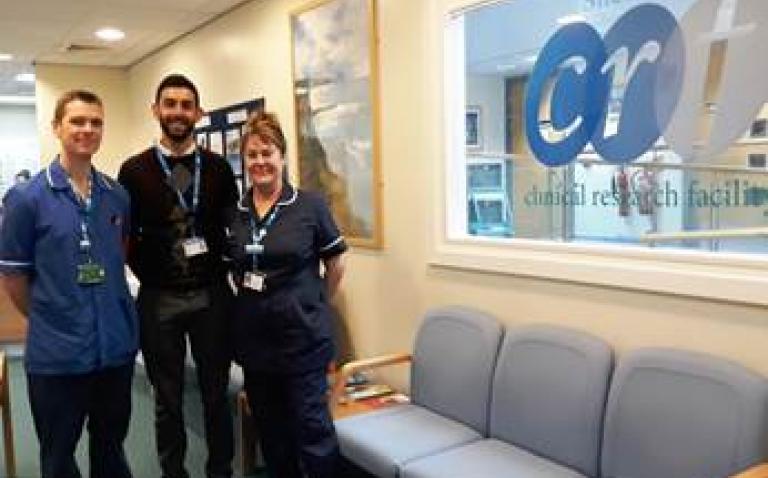Sheffield Teaching Hospitals NHS Foundation Trust has been named as one of 20 UK sites involved in a landmark trial assessing whether a drug commonly used to prevent nausea and sickness after surgery, radiotherapy or chemotherapy could help treat patients suffering with the agonising symptoms of irritable bowel syndrome.
Researchers taking part in the nationwide TRITON trial, funded by the National Institute for Health Research, will look to assess whether a much lower dose of the drug ondansetron could successfully alleviate agonising symptoms experienced by those living with irritable bowel syndrome accompanied predominantly by diarrhoea and loose bowel movements.
Ondansetron was originally developed to treat the side effects of chemotherapy, and works by blocking abnormally high amounts of serotonin, a natural substance that stimulates receptors in the gut that send signals to the part of the brain that causes nausea and controls vomiting.
Once these signals are interrupted, the sickness can be stopped.
Researchers hope that by using a lower dose of ondansetron in patients with irritable bowel syndrome the drug can block the excess levels of serotonin that are found in the intestine of some patients with irritable bowel syndrome.
They will also look to see if the response to the drug is dependent on genetic factors so variation in the gene controlling the production of serotonin will be explored.
During the 12-week trial, 400 patients recruited from across the UK will be asked to keep a detailed diary and respond to daily text messages to document their symptoms. This will help doctors to assess any potential benefits of the new medication.
Half of the volunteers taking part will be prescribed the drug, while the other half will receive a placebo.
Professor David Sanders, consultant gastroenterologist at Sheffield Teaching Hospitals NHS Foundation Trust and Professor of Gastroenterology at the University of Sheffield, said: “Irritable bowel syndrome is a debilitating, incurable, condition which affects people in a variety of ways, disrupting daily activities, and impacting on the quality of people’s lives, physically, emotionally and socially.
“We are delighted that Sheffield will be playing a leading role in this landmark trial as the possibility of this drug providing a treatment for patients with the condition who predominantly suffer with loose bowel movements and diarrhoea is fantastic.
“Only a small number of people have had this treatment before for irritable bowel syndrome so it will be a great chance to benchmark this research. We’re also delighted that Dr Imran Aziz, an internationally renowned expert in irritable bowel syndrome, has returned from Sweden to run the Sheffield trial from our centre of excellence at Sheffield Teaching Hospitals.”
The trial, which is being led nationwide by researchers from the University of Nottingham, is being carried out in collaboration with Nottingham University NHS Hospital Trust, as part of the National Institute for Health Research Nottingham Biomedical Research Centre. The Sheffield study is being supported by the Sheffield National Institute for Health Research Clinical Research Facility.
Patients from Sheffield and South Yorkshire will be recruited through gastrointestinal clinics run by Sheffield Teaching Hospitals NHS Foundation Trust.
For further information email [email protected] or visit the dedicated TRITON website https://ctru.leeds.ac.uk/triton.










